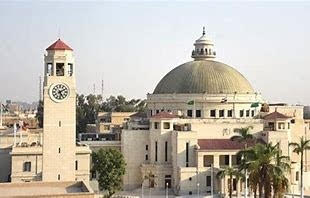In World Cup 2018, viewers got to see two harassment incidents on air. The first was when the Egyptian Nile Sport TV male correspondent was kissed by a Russian female football fan who gushed: “I love Egypt and Egyptians”. The second was when Deutsche Welle’s female correspondent was passionately kissed by a male fan as she reported live from Russia. In both cases, there was a brief moment of shock after which the correspondents continued talking into the camera, while the fans disappeared back into the crowd.
The Egyptian correspondent said, “I was on air; there was no chance to do anything. I tried to act as professionally as I could. Since that incident, however, my Facebook wall has been inundated with ‘friend’ requests.” Obviously, being kissed by a Russian woman skyrocketed his popularity.
As to the Deutsche Welle reporter, she addressed the incident on her Instagram account: “We don’t deserve this treatment. We are equally valuable and professional. I share the joy of football, but we must identify the limits of affection and harassment.” The German TV channel described the incident as “glaring harassment”.
No attempt to justify
We are before the same act, but it has been seen differently in the two cases, according to the culture prevalent in each society: the Egyptian and the German. Egyptians accepted and even admired that a Russian woman would kiss an Egyptian man, but would they have accepted the same behaviour if it came from an Egyptian woman? Definitely not! She would have been described not as a harasser, but as a woman with no decency.
The question that begs an answer is: what is the difference between male and female harassment as seen by our society? Men are commonly branded as harassers, which is an undeniable fact but which should also avoid generalisation: not all men are harassers. Women, on the other hand, are seen as victims of harassment, which follows logically from men being the harassers. But it must be admitted that women may also be harassers, even though they cannot compare to men in this regard; that is if we may consider acts of seduction as harassment.
I wish to make myself clear: I am not attempting to justify male harassment by saying that women too may be harassers. In fact, there is a difference between the two cases not only quantitatively, meaning the frequency of harassment incidents, but also in the qualitative sense, in practices that qualify as harassment.
Gender identity defined
In different communities, harassment relates to prevalent concepts of masculinity and femininity, concepts that define gender identity. Legally, it is a criminal act. Culturally and socially, harassment is a disgraceful, immoral act.
In our community, studies and first-hand testimonies show that young males become harassers because they think that their macho character requires such gender aggressiveness. Harassment for them is an unmistakeable sign of masculinity; as such it becomes an arena in which they compete.
The harassing teenager often fails to answer the simple question: “Why do you harass women? What do you benefit from it?” Of course there is the sexual motivation, the pleasure achieved by physical or verbal contact, but it must be admitted that such contact in public fulfills no desire but the desire to flaunt power, to hurt or offend. The replies we more often than not get, however, fall into two categories: One expresses pride in macho behaviour; the other resorts to justifying the deed by claiming that it is the women who are responsible either through seduction or because ‘it makes them happy to feel they are attractive enough to be targets of harassment’. This is a wicked attempt not only to justify but to rationalise harassment.
Societal norms
Female harassment is a different story. It is generally considered not harassment, but seduction. Harassing women are seen as indecent and immodest; as such they earn blame and reproach from both men and women. In our society, female indecency is disgraceful and can in no way be justified.
Female seduction is a justification frequently used by men to harass women. We cannot brush aside the fact that some women master the game of seduction because it appeals to their perception of femininity. In a macho society, women imagine that their power derives from their ability to be attractive and tempting to men.
To sum it up, harassment and seduction primarily relate to prevalent societal concepts of masculinity and femininity. Any real change towards respect of the other gender can only be achieved by changing social concepts and attitudes. This implies working at dismantling current deeply rooted concepts of gender identity, and replacing them with ones that build on respect of and compassion for the other.
This is hard, arduous work, but definitely worth the effort. After all, the 1000 mile journey begins with a single step.
Watani International
18 July 2018











